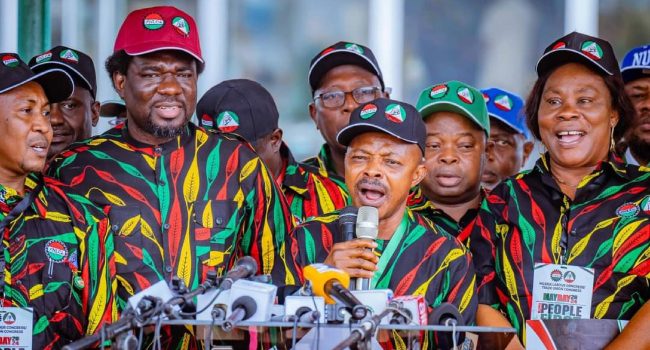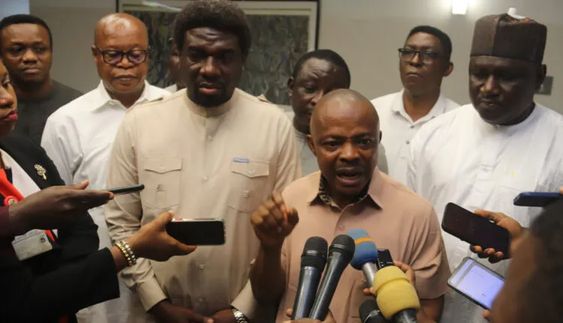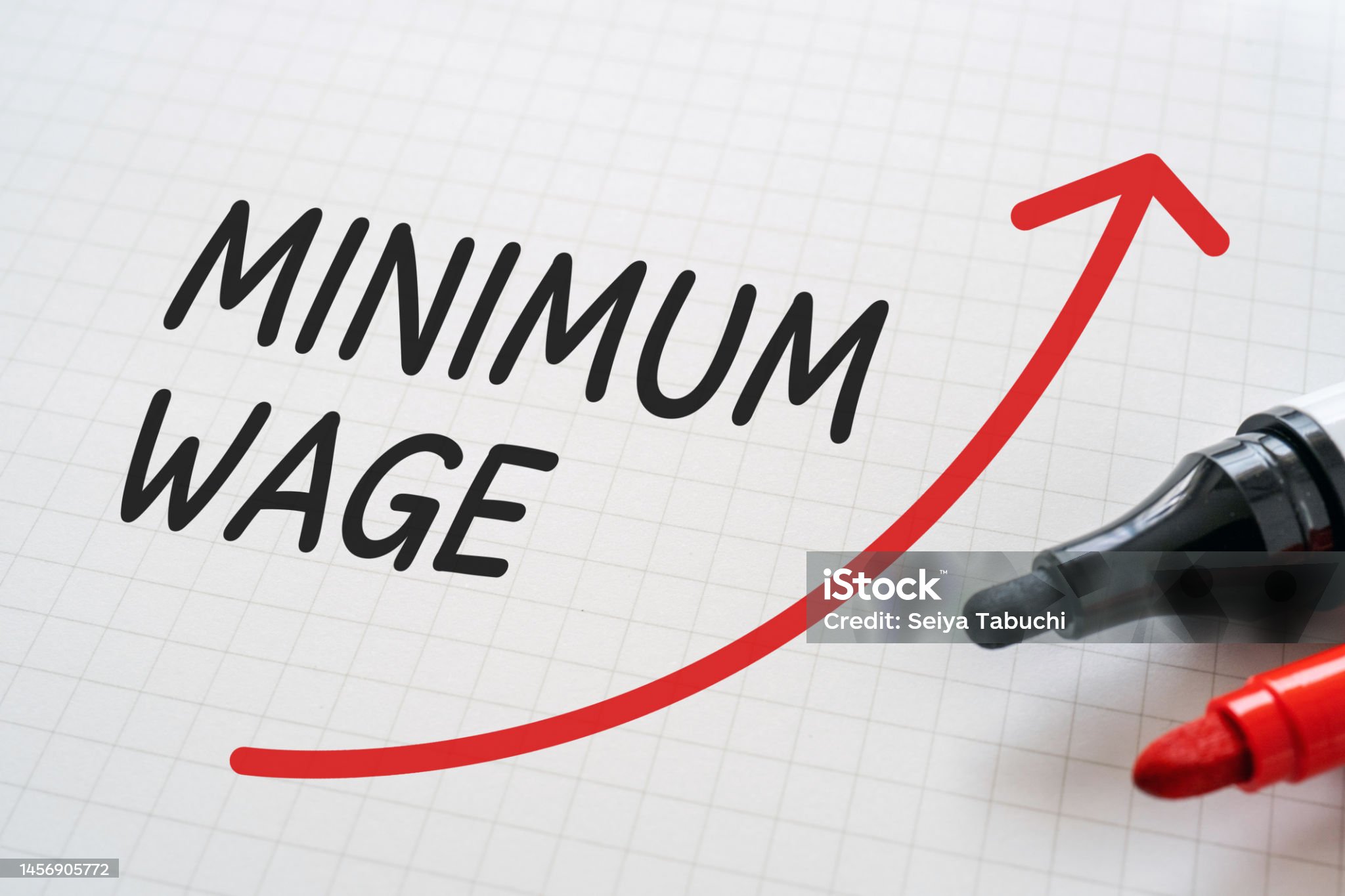Headlines
Breaking: Labour Declines FG’s ₦54,000 Wage Proposal, More Talks on Wednesday

The ongoing saga of Nigeria’s minimum wage negotiations has taken a new turn as labour unions have rejected the Federal Government’s fresh offer of ₦54,000. This decision has sparked widespread debate and anticipation as both parties prepare to return to the negotiating table on Wednesday. But why did labour reject this offer, and what does this mean for the future of wage discussions in Nigeria?
Background of the Wage Negotiations
To understand the current impasse, it’s essential to look back at the history of wage negotiations in Nigeria. Over the years, wage discussions have been a recurring theme, reflecting the broader economic and social challenges facing the country. The last major wage adjustment occurred in 2019, when the minimum wage was increased to ₦30,000 after prolonged negotiations.
The New ₦54,000 Wage Offer
The Federal Government’s latest proposal of ₦54,000 represents a significant increase from the current ₦30,000 minimum wage. This offer was intended to address the rising cost of living and inflation that have eroded workers’ purchasing power. However, for many in the labour sector, this increase falls short of expectations.
Labour’s Reaction to the ₦54,000 Offer
Labour unions were quick to reject the ₦54,000 wage offer, calling it inadequate given the current economic realities. In their official statement, union leaders cited the persistent high inflation rates, the increasing cost of basic necessities, and the need for a living wage that truly reflects the hardships faced by workers.

Economic Context
Nigeria’s economy has faced significant challenges in recent years, including high inflation, unemployment, and a depreciating currency. The cost of living has skyrocketed, making it difficult for many workers to make ends meet. This economic backdrop has been a crucial factor in labour’s insistence on a higher wage offer.
Impact on Workers
For the average Nigerian worker, the proposed ₦54,000 wage does little to alleviate the financial burden. Many workers report struggling to cover basic expenses such as food, housing, and transportation. Stories from workers highlight the daily struggles and the growing frustration with wages that do not match the cost of living.
READ ALSO: BREAKING: Labour Withdraws from Minimum Wage Negotiations
Government’s Stance
Government officials have defended the ₦54,000 proposal, arguing that it is a fair and sustainable increase given the country’s financial constraints. They point to budgetary limitations and other financial commitments as reasons for their cautious approach to wage increases.
Comparison with Global Standards
When compared to global standards, Nigeria’s proposed minimum wage remains low. In many developed countries, minimum wages are regularly adjusted to keep pace with inflation and ensure a decent standard of living for workers. Case studies from countries like Germany and Australia show the benefits of higher minimum wages in promoting economic stability and reducing poverty.

The Role of Labour Unions
Labour unions play a critical role in advocating for workers’ rights and ensuring fair wages. Their involvement in wage negotiations is crucial, as they bring the concerns of the workforce to the forefront. Historically, unions have been instrumental in securing wage increases and better working conditions.
Ongoing Negotiations
As negotiations continue, both parties are preparing for further discussions. The timeline for these talks remains fluid, with the next meeting scheduled for Wednesday. The outcome of these negotiations will have significant implications for workers and the broader economy.
Public Opinion
Public opinion on the wage offer is divided. While some believe that the ₦54,000 proposal is a step in the right direction, others argue that it is insufficient. Media coverage has reflected these diverse views, with many commentators emphasizing the need for a more substantial wage increase.
Potential Outcomes
The potential outcomes of the ongoing negotiations are varied. If an agreement is reached, it could lead to improved morale and productivity among workers. However, a prolonged standoff could result in strikes and industrial actions, further straining the economy.
Labour’s Demands
Labour unions have made specific demands, including a minimum wage that reflects the true cost of living and additional benefits for workers. These demands are seen as necessary to ensure that workers can lead dignified lives and contribute positively to the economy.
Government’s Financial Constraints
The government’s financial constraints are a significant factor in the negotiations. With a budget stretched thin by various obligations, including debt repayments and public sector salaries, officials argue that any wage increase must be carefully balanced against these realities.
The rejection of the ₦54,000 wage offer by labour unions marks a critical point in Nigeria’s ongoing wage negotiations. As talks continue, both parties face the challenge of finding a compromise that addresses the economic needs of workers while considering the financial limitations of the government. The future of these negotiations will be closely watched, with significant implications for the country’s economic and social landscape.
FAQs
What is the current minimum wage in Nigeria? The current minimum wage in Nigeria is ₦30,000, which was set in 2019 after extensive negotiations between the government and labour unions.
Why did labour reject the ₦54,000 wage offer? Labour unions rejected the ₦54,000 wage offer because they believe it does not adequately address the high cost of living and inflation that workers are currently facing.
What are the next steps in the negotiation process? The next steps involve further negotiations scheduled to continue on Wednesday. Both parties will aim to reach a compromise that meets the needs of workers and the government’s financial capabilities.
How does the wage offer compare to the cost of living in Nigeria? The proposed ₦54,000 wage is seen as insufficient by many workers and labour unions, who argue that it does not keep pace with the rising cost of living and inflation in Nigeria.
What role do labour unions play in these negotiations? Labour unions play a vital role in representing the interests of workers and advocating for fair wages and working conditions. Their involvement is crucial in ensuring that wage negotiations consider the needs and rights of the workforce.

